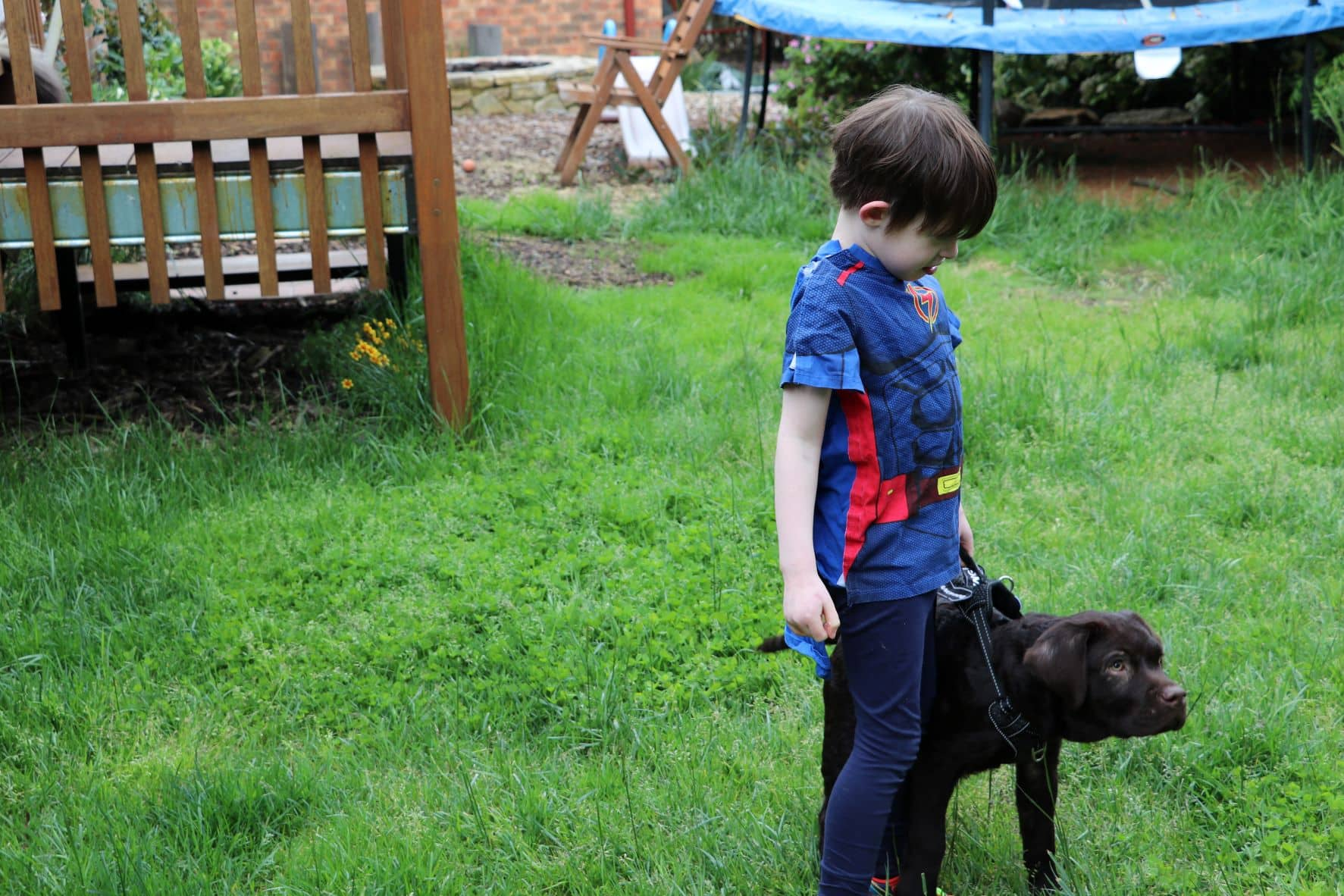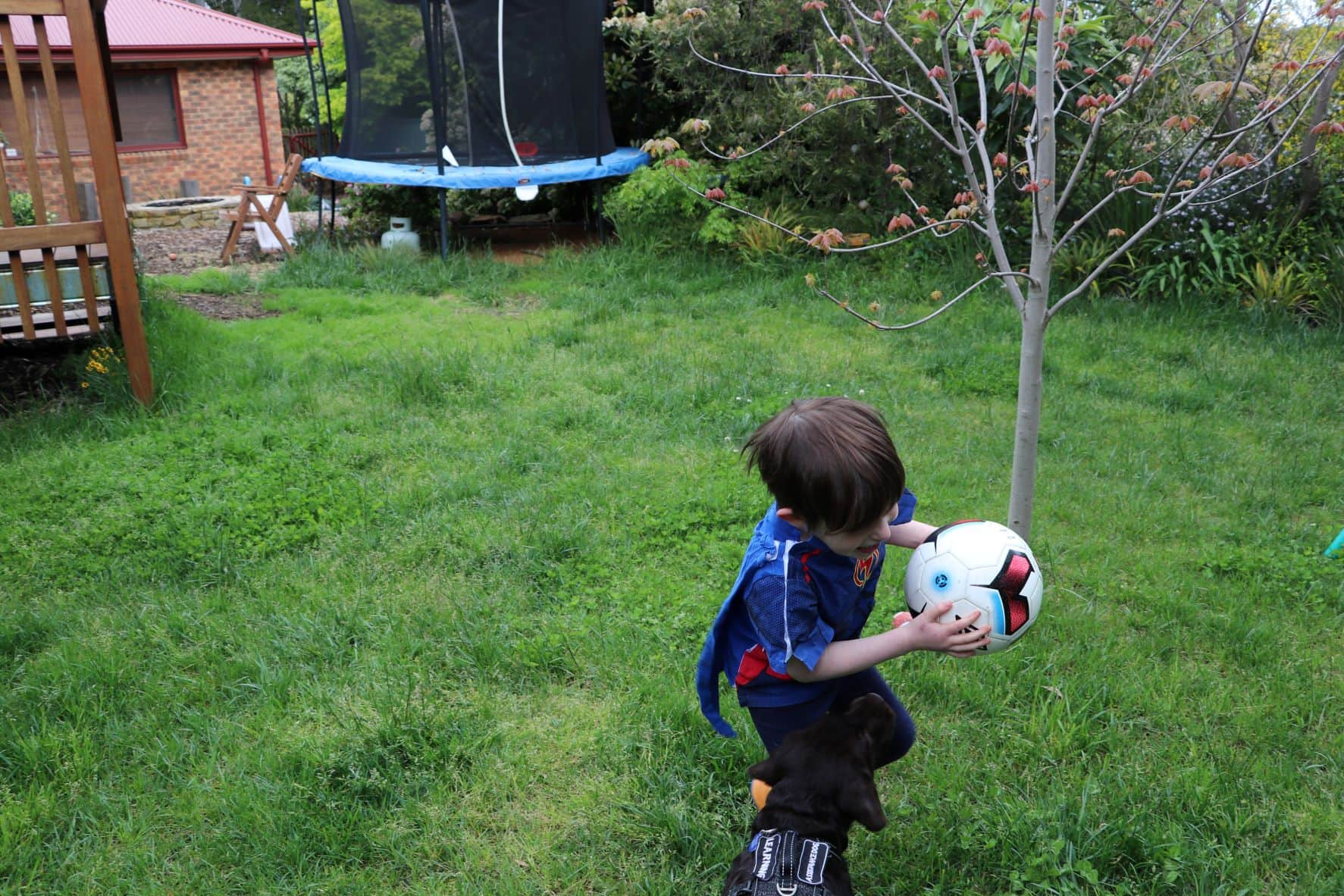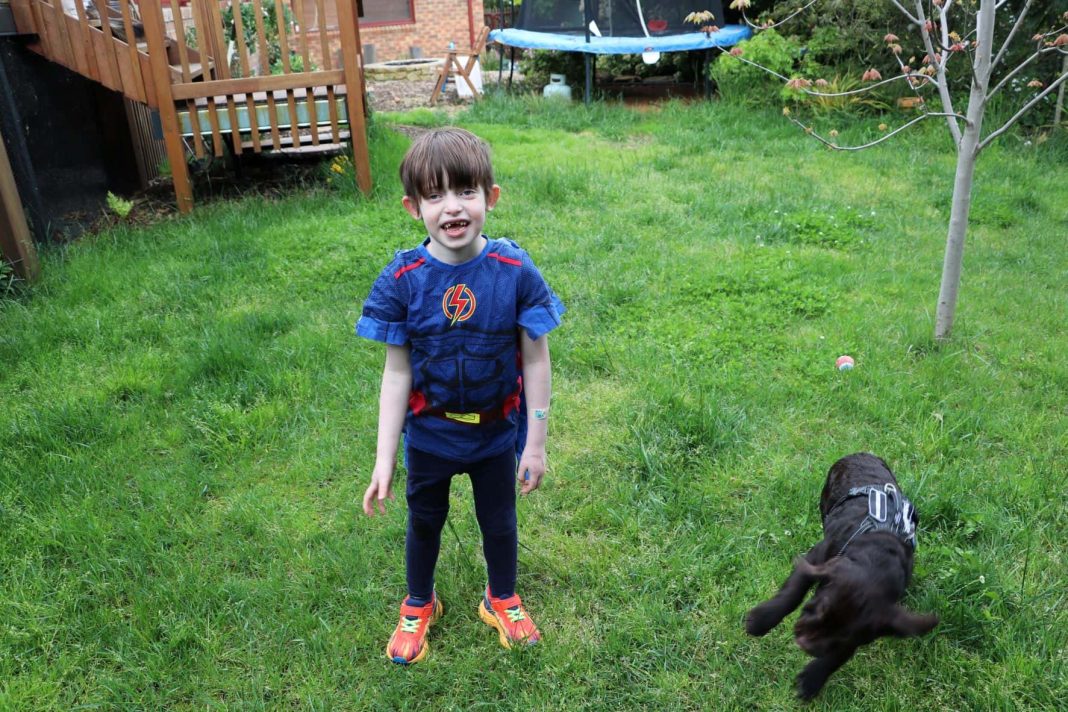Just before Charlie Clode’s seventh birthday, he had been released home following his 120th hospital stint.
Charlie was born without a connection between his heart and lungs, thus beginning his life-long journey of surviving with congenital heart disease.
While Canberra Daily visited his family home, the grinning boy jumped around energetically, interrupting our interview to excitedly ask CW’s journalist to “come and play” with him.
Mum, Melissa, smiled and responded to his many ‘I love you’s‘ while detailing how rapidly he can change from the happy, bubbly boy we saw, to being incredibly sick.


“He has multiple medical and disability problems. He was born with a condition called DiGeorge syndrome or 22q11.2 deletion syndrome – a genetic condition,” says Melissa.
“So, we knew from before he was born that he was going to be in a lot of trouble, I guess. And we didn’t know whether or not he would survive, even shortly after birth.”
His list of medical conditions also includes pulmonary atresia, an overriding aorta, and a ventricular septal defect.
It’s taken a lot to get him to seven years old, but Melissa dubs him a “thriving little boy”.
Charlie has had three open heart surgeries and four or five closed heart surgeries, which incidentally caused him to have multiple strokes, leaving him with an intellectual disability and epilepsy.
“So yeah, we spent a lot of time in hospital. We’ve had over 100 admissions – I think I counted about 120,” Melissa says.
During Charlie’s hospital stays, and sometimes at home, he’s connected to an array of various machines through copious chords, which can leave him frustrated and bare – literally.
“Last year, he was on a PICC (Peripherally inserted central catheter) line twice for six weeks, which is basically like an IV, but it goes up your arm and straight into your heart to deliver antibiotics directly to your heart muscle.
“And he was wearing a little backpack with solution to make sure that it was a completely closed circuit and then nurses come to our home a couple of times a day to give him hospital in the home to put antibiotics through it as well.
“So, there’s a lot of times where he’s hooked up to things at home, in his bedroom he’s hooked up to hospital monitoring, he has a hospital bed, he always has a monitor at nighttime because his seizures are the sort of seizures where he stops breathing and needs respiratory resuscitation.”
- Read more: Sweating on Supertee delivery for sick kids at Canberra hospital (26 October 2022)
These situations would leave Charlie unable to wear a shirt for days and weeks at a time.
One thing that’s created some dignity and comfort for the seven-year-old has been the Supertee – a hospital gown specifically designed for kids just like him.
“A Supertee is designed to be able to easily put over those things. So, he’s actually still able to be a kid in hospital. They were designed initially by parents, because of the lack of that ability,” explains Melissa.
“He is a little boy, first and foremost, and having something that can actually let him not be half naked, especially at the age of seven, in a hospital bed, is nice.”
A medically safe garment, the Supertee can be ripped straight off in an emergency, has pockets to thread tubes through, can be pulled over children’s head so their IVs don’t have to be disconnected, and an added bonus is they’re designed with Marvel imagery, meaning the kids become superheroes – capes and all.
“So rather than a naked little sick person, he gets to be a little superhero.”
-Charlie Clode’s mum, Melissa
Melissa says it is quite strange that generic hospital garments don’t take into account the many children like Charlie, but she understands the gowns are designed for the majority of people.
For a child who has to be in hospital for a couple of days, it doesn’t matter as much if they have a bare chest, but for one whose second home is the hospital, Melissa says medicalising things as little as possible reduces Charlie’s trauma – and that involves the Supertees.
Supertee has been unable to supply children in hospital in the ACT with Supertees for over a year now, and founder Jason Sotiris has been campaigning to change that.
While the garments are free of charge to hospitals all over Australia, it takes businesses and community groups to help support their manufacture and delivery.
“So far, more than 13,000 Supertees have made their way into hospitals around Australia giving already brave children additional courage, but our dream is to help bring out the Captain America and Captain Marvel in all children in hospital,” says Jason.
Visit the Supertees website to find out more.
Get all the latest Canberra news, sport, entertainment, lifestyle, competitions and more delivered straight to your inbox with the Canberra Daily Daily Newsletter. Sign up here.



